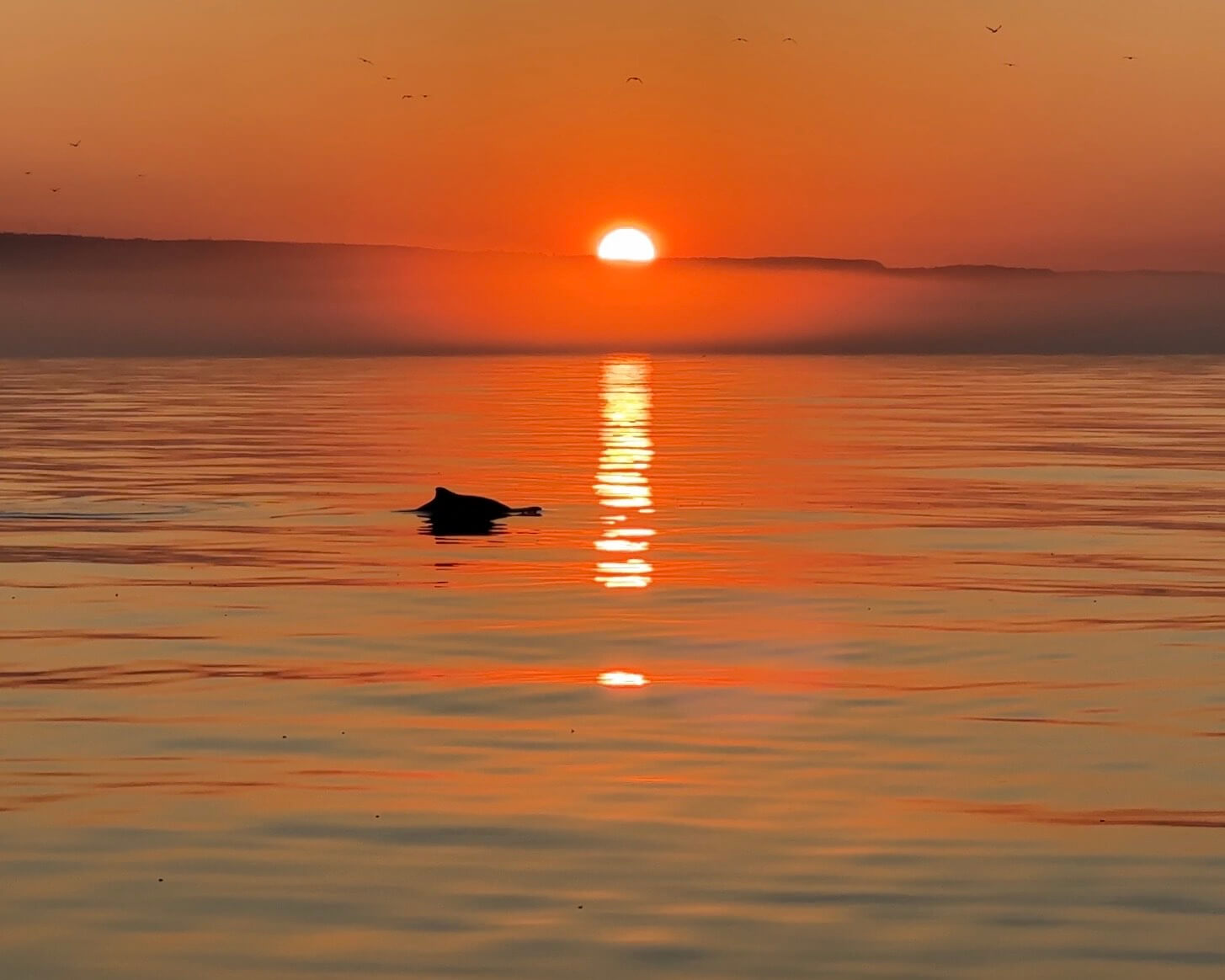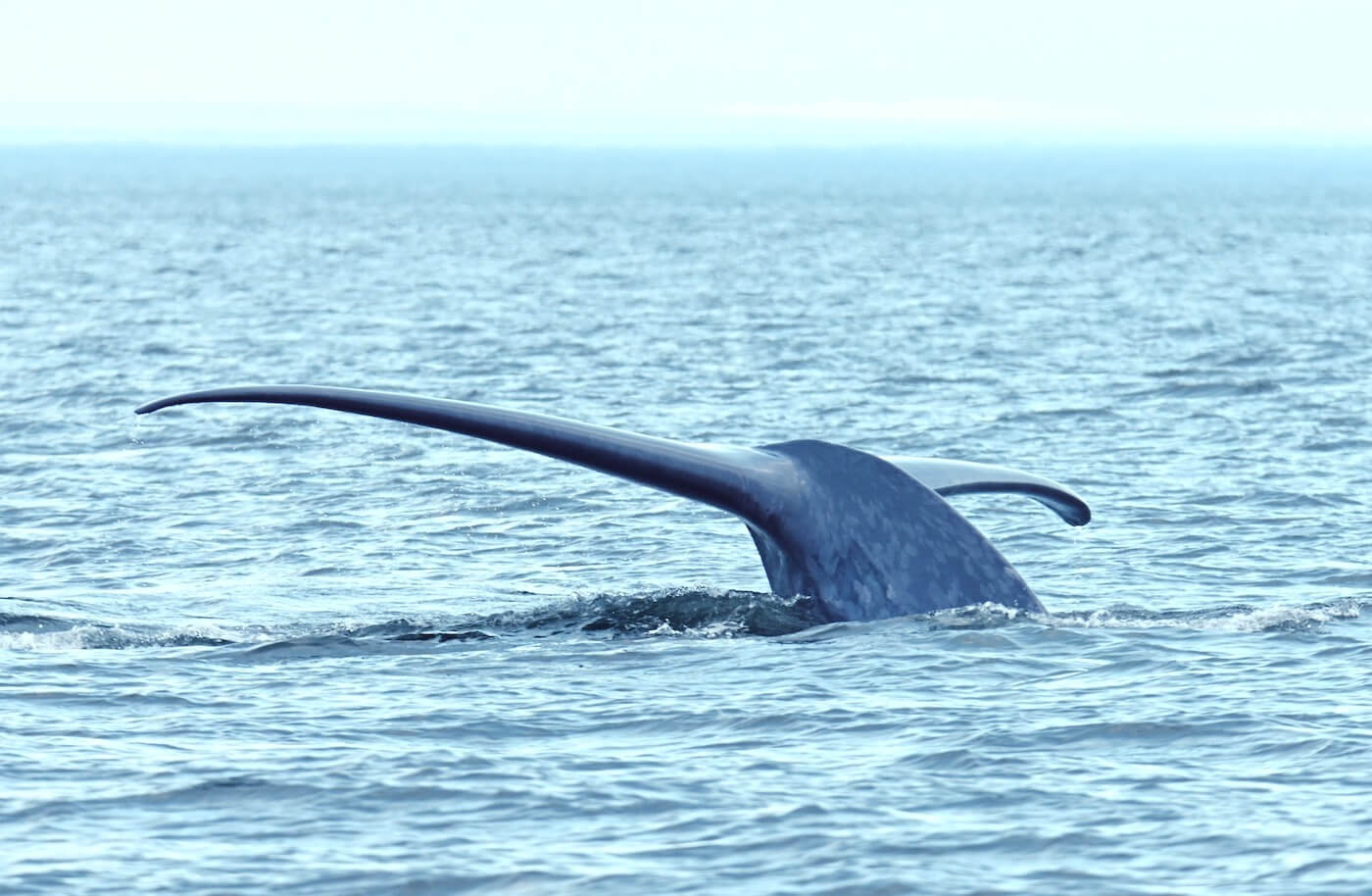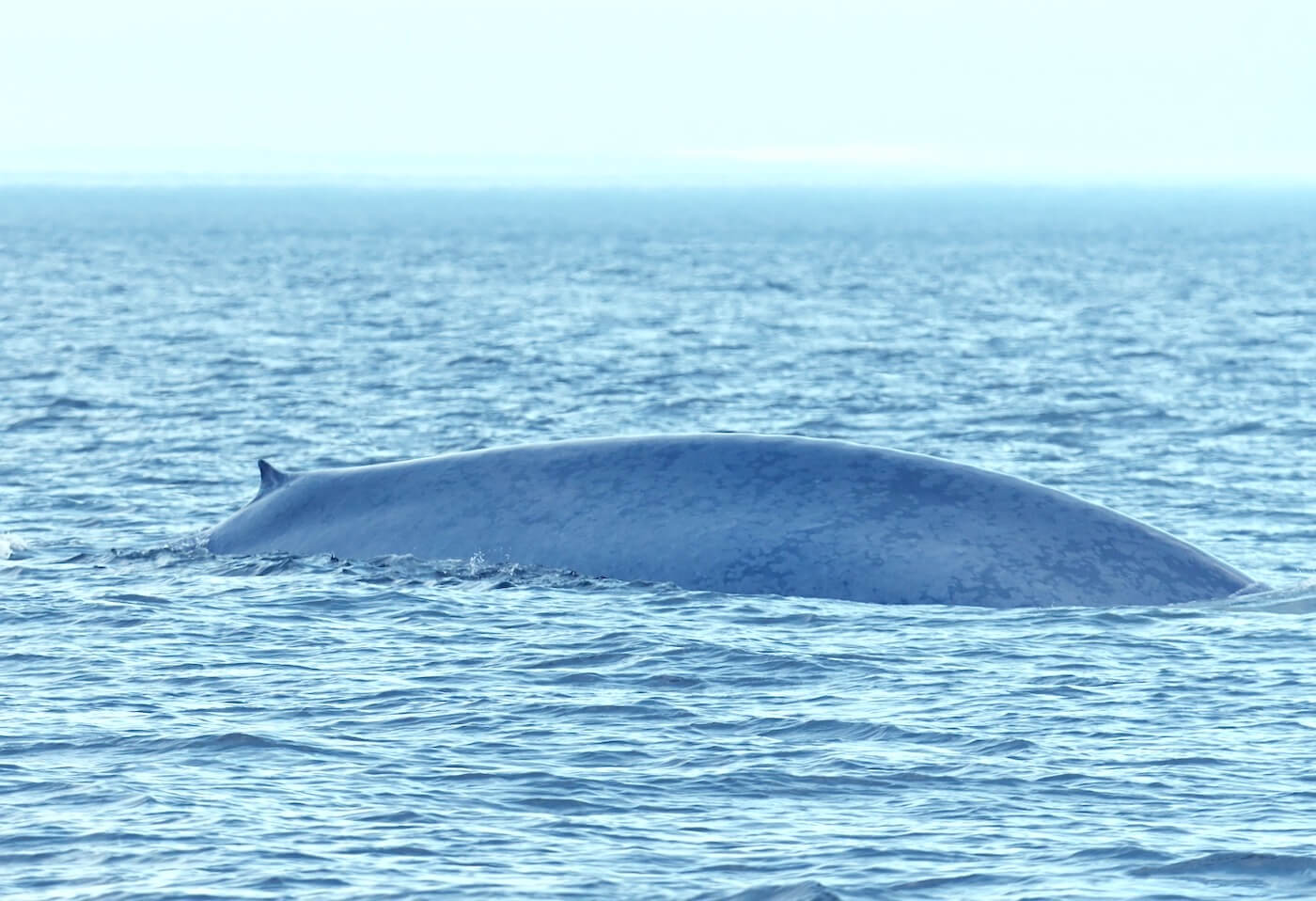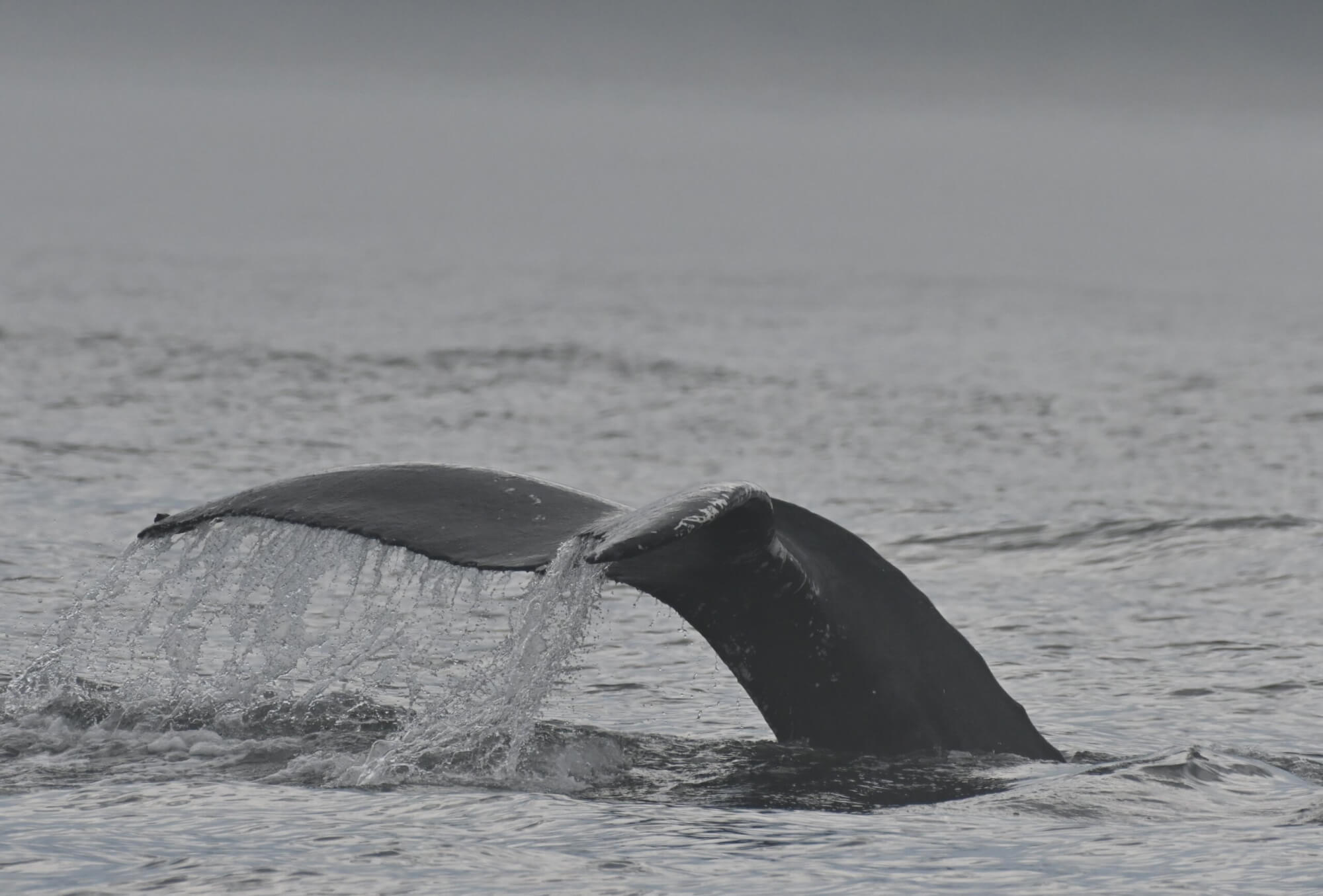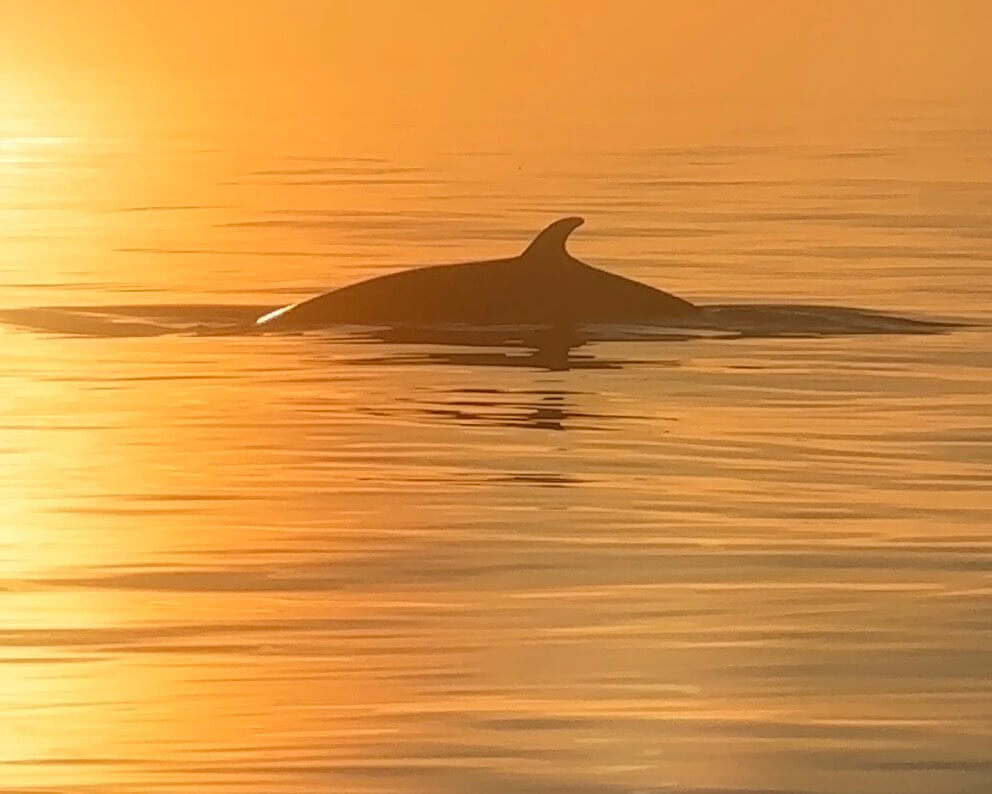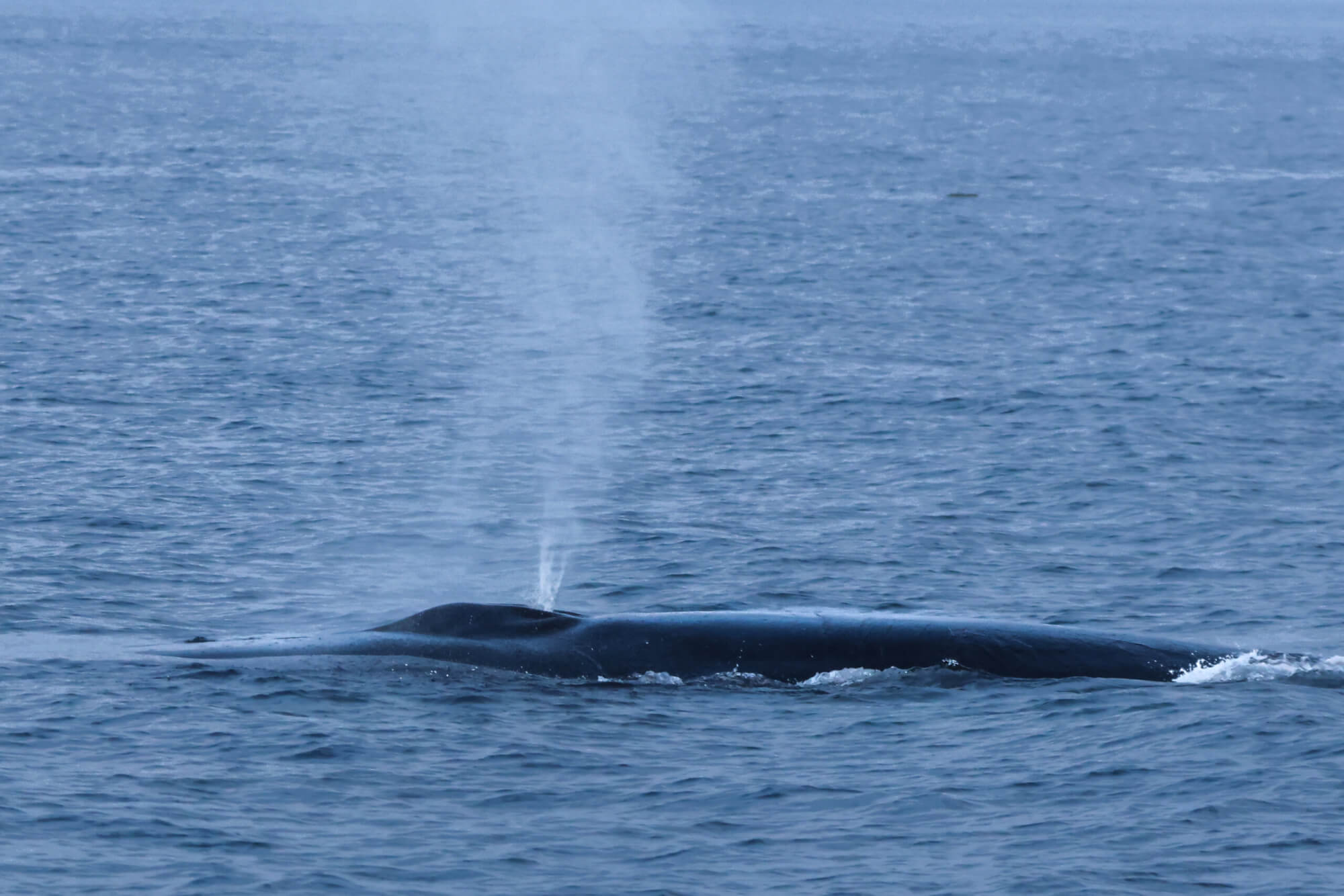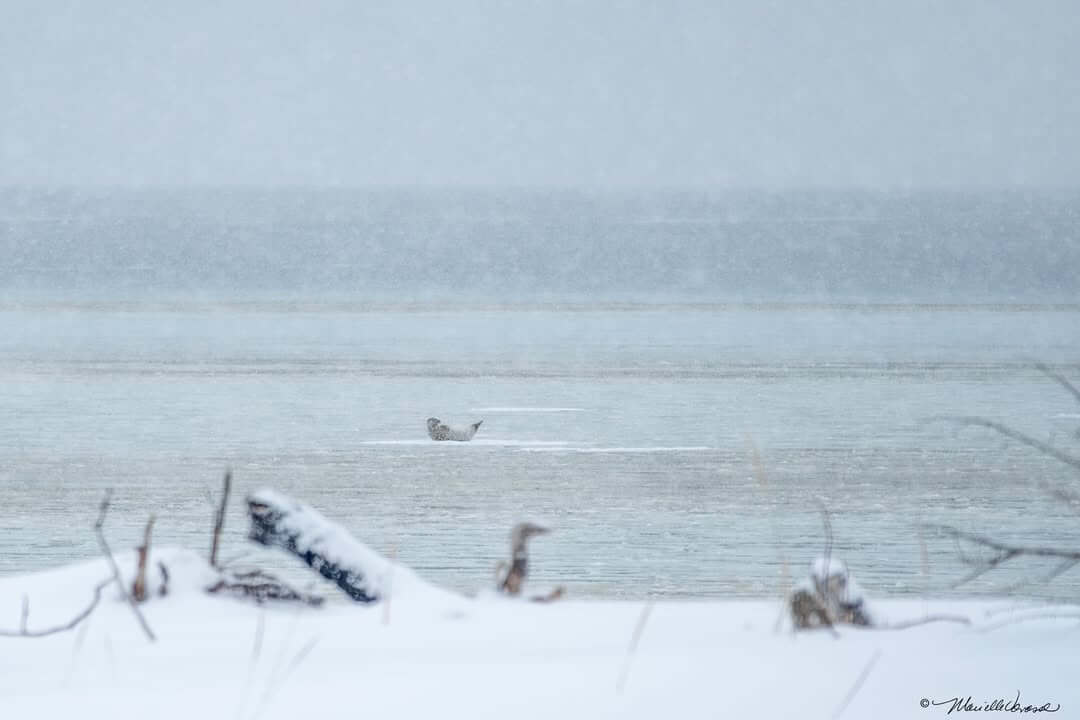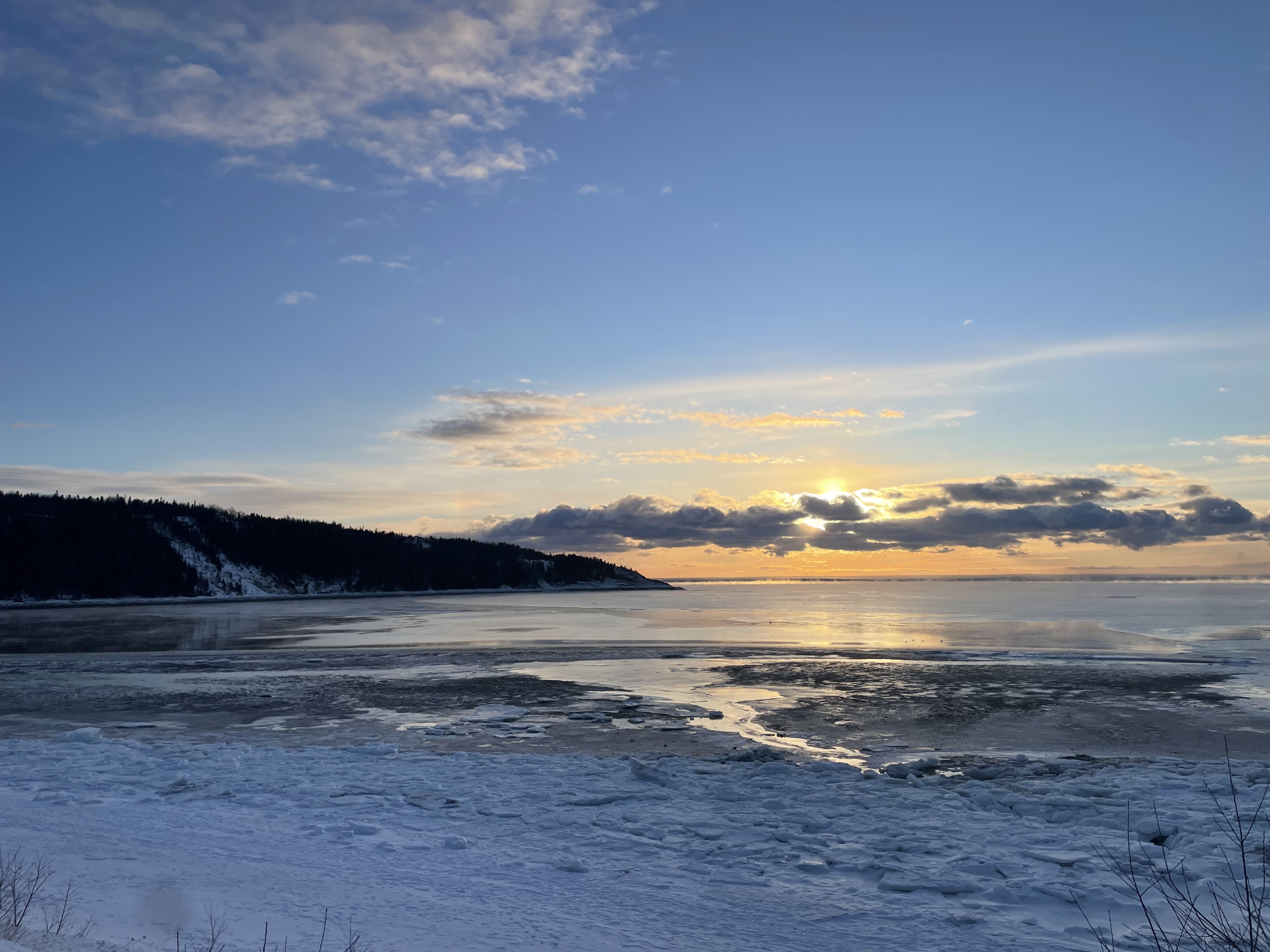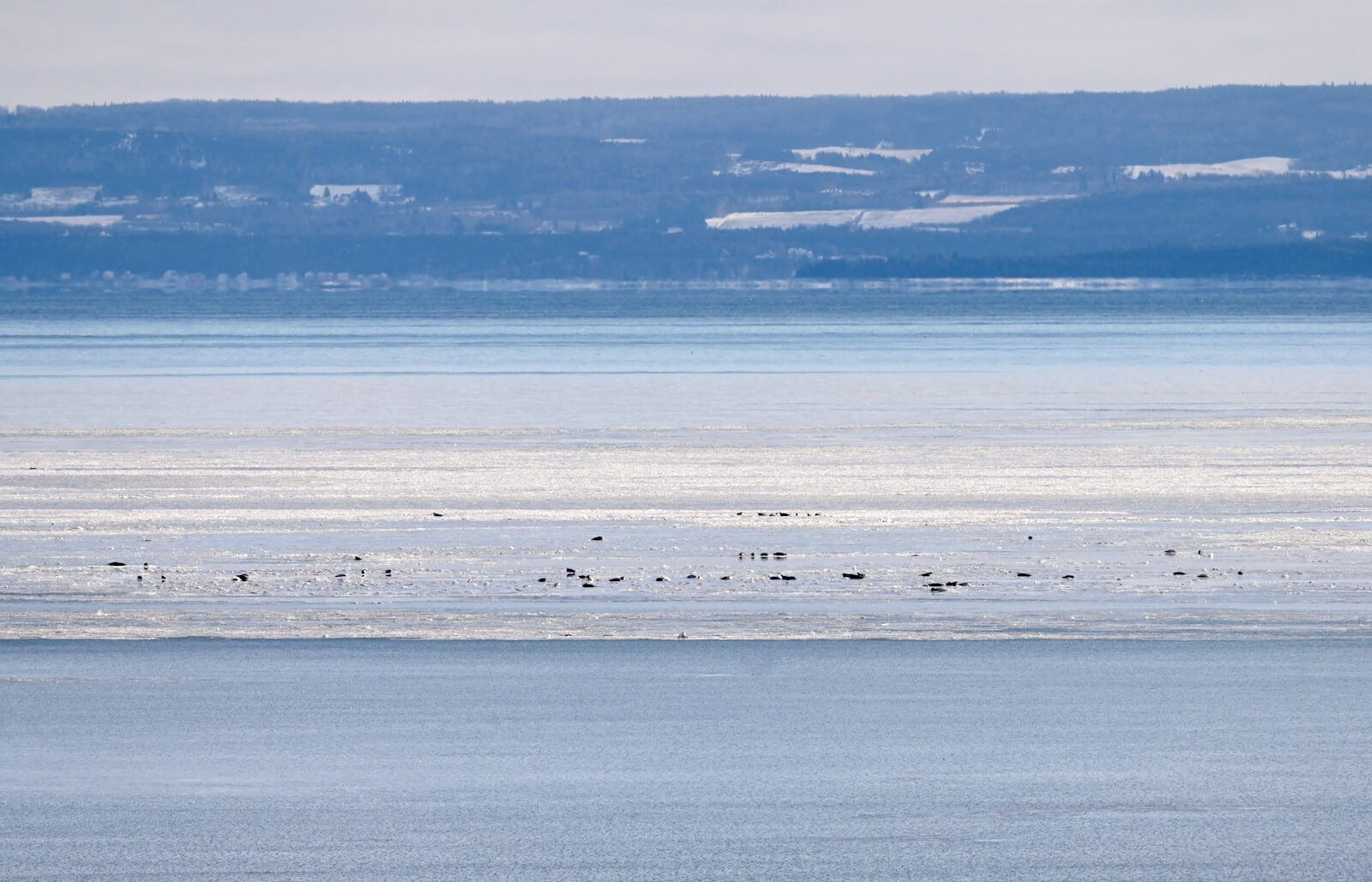Imagine having the chance to see all four species of rorquals that frequent the St. Lawrence in the same day! For two whale aficionados, July 14 will long remain a day engraved in their memory thanks to the cetaceans they saw that day: minke whales, a humpback whale, a fin whale and a blue whale.
They use a sports metaphor to share their observations: “As it was a foggy day, we didn’t even think we would see a minke whale. We saw 2 or 3 minkes, a fin whale – we heard its breath in the mist before it swam past some nearby rocks – the famous humpback whale Éline, and then… the blue whale Phoenix! That’s a grand slam, seeing all four of these species in a single observation session.” In baseball, a grand slam is the equivalent of a home run while the bases are loaded, while in tennis, it means winning the four major championships on the international circuit. The equivalent in the St. Lawrence would therefore be to see all four species of rorquals in a single outing. Which doesn’t happen every day!
The icing on the cake was that the blue whale even showed its tail when it dove! Only about 15 to 18% of the blue whales that frequent the St. Lawrence lift their tails. And Phoenix is one of them! The female was also observed with a calf in 2018.
But marine fauna diversity had still not peaked, as there were still other species to come. “There were also harbour porpoises, and then we said to ourselves ‘Hey, we’re just missing the beluga, otherwise we saw just about everything.’ Five minutes later, a single beluga emerges. It was crazy, crazy, crazy!” The day will remain etched in their memories for years to come.
Whales and seals
In Saint-Irénée, two belugas swim peacefully near the shore. According to a resident of Port-au-Persil, marine mammals are plentiful in the area this season. From the docks, in addition to spouts, she regularly observes minke whales, large rorquals, belugas, porpoises and seals! A few kilometres away, near Saint-Siméon, a humpback whale blows in the fog. The impressive sound is heard even louder than usual and after a few breaths, the individual dives again.
From Tadoussac, herds of belugas are regularly seen at the gates of the Saguenay, and let’s not forget about the humpback that made an incursion into the fjord for a few hours! Minke whales and harbour seals are also in the area. A little farther east, in Les Escoumins, productive whale watching delights observers as they enjoy their evenings on the banks of the St. Lawrence: “On Monday evening, two humpback whales swimming in different directions crossed paths near the marina in Les Escoumins,” reports a local North Shore resident. “A few minutes before that, a fin whale and a minke whale were also swimming in the area!”
Minke whale festival
In Baie-Comeau, minke whales are the talk of the town! Every day near the docks, several individuals feed near the shore, giving rise to flashes of fins, dorsals and baleen. Last Saturday, local residents even counted about a dozen of them. Birdlife was also abundant: “Dozens of gannets at the Baie-Comeau marina,” notes a regular, “They were dive-bombing all around!” There must have been a healthy supply of food there; it was incredible.” Harp seals and harbour porpoises have been hanging out in the area, while a mysterious humpback whale blow was spotted in the distance.
Days on the water
One woman shares her experience exploring the Mingan Islands on a gorgeous day on the water replete with birds, seals and whales! “A minke whale at the entrance to Baie Quarry. Two golden eagles circling above and a gathering of 38 grey seals north of Quarry Island that seemed to be floating with the current. […] We heard a minke whale exhale, but were unable to see it.” The day continues at a good clip, with common eiders, gulls, cormorants, a great blue heron and several other birds. Harbour porpoises were also seen, and the trip ends with the presence of a minke whale.
For the Mingan Island Cetacean Study (MICS) team, the week concluded with the observation of a North Atlantic right whale off Rivière-au-Tonnerre as well as the presence of two humpbacks and four fin whales near Havre-Saint-Pierre.
Belugas in Gaspésie
Belugas are still all the rage along the Gaspé coast. In Rivière-Madeleine, residents spotted six swimming offshore in the early evening. In Baie-des-Sables, a solitary beluga is working the waters off the wharf, allowing for an unusual up-close observation! From Cap-Chat, a local resident observes a beluga feeding near shore and even occasionally revealing its tail! “Two others arrive in the area, apparently a mother and her calf, as the latter is very grey and small and they are diving in sync, showing their tails. A group of around ten individuals arrives afterwards and the beautiful ballet resumes. […] I had never had the chance to see the tail of a beluga. This morning I saw dozens of them. There are several harbour seals feeding in the area as well.” A few days later, a humpback whale was roaming the area.
In Gaspé Bay, a naturalist tallies good numbers of whales and seals: “Ever increasing numbers of harbour and grey seals, minke whales surface feeding and breaching, and the presence of a fin whale and a humpback in the Cap Gaspé sector. ”
Where are the whales this week? Observation map
These data were reported by our network of observers. They give an idea of the presence of whales and in no way represent the actual distribution of whales in the St. Lawrence. Just for fun!
Click on the whale or seal icons to discover the species, the number of individuals, additional information or photos of the sighting. To enlarge the map, click on the icon in the top right-hand corner. The map works well on Chrome and Firefox, but not so well on Safari.
To display the list of sightings, click on the icon in the top left-hand corner.
Thanks to all our collaborators!
Special thanks go out to all our observers who share their love for marine mammals with us! Your encounters with cetaceans and pinnipeds are always a pleasure to read and discover.
On the water or from shore, it is your eyes that give life to this column.
André Bujold
Odélie Brouillette
Guylaine Côté
Marie-Andrée Charleboix
Michel Comeau
Clara Comeau
Thalia Cohen-Bacry
Marcel Cousineau
Laurence Deschênes
Laetitia Desbordes
Marie-Hélène Darcy
Louis-Pierre Ducharme
Alain Guay
Ninon Lambs
Louise Laperrière
Jade-Audrey Lavergne
Philippe Legault
Yael Medav
Élizabeth Melis
Camille Némond
Diane Ostiguy
Estelle Pagé
Stephane Pages
Chloé Pazart
Renaud Pintiaux
Pascal Pitre
Patricia Rioux
Jean Roy
René Roy
Guillaume Savard
Anne Sergerie
Christine Stadelmann
Andréanne Sylvain
Geneviève Tanguay
Marielle Vanasse
Additionally, we would like to acknowledge the following teams that also share their sightings:
Sept-Îles Research and Education Centre (CERSI)
Group for Research and Education on Marine Mammals (GREMM)
Marine Mammal Observation Network (MMON)
Quebec Marine Mammal Emergency Response Network (QMMERN)
Mingan Island Cetacean Study (MICS)
Would you also like to share your observations?
Have you seen any marine mammals in the St. Lawrence? Whether it’s a spout offshore or just a couple of seals, drop us a line and send your photos to [email protected]!


